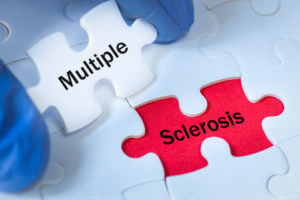Cerebral palsy (CP) is a neurological disorder affecting movement and muscle tone. According to studies, it is caused by injury to the brain before, during, or after birth. The symptoms show in infancy or early school years. While there is no cure for the condition, there are effective treatments and strategies that can help in managing
Read MoreHow to Find the Best Multiple Sclerosis Treatment Near You
Multiple sclerosis (MS) is a chronic autoimmune disease that affects the central nervous system, including the brain and spinal cord. The immune system mistakenly attacks the protective myelin sheath that covers nerve fibers, leading to inflammation and scarring (sclerosis) throughout the central nervous system. Sclerosis disrupts the transmission of nerve signals between the brain and
Read MoreWhen to Seek Medical Help for Severe Headaches: Warning Signs and Red Flags for Immediate Attention
Headaches, a common ailment affecting individuals across various age groups, can range from mild discomfort to severe pain that disrupts daily activities. Headaches are often benign and treatable with over-the-counter medication. However, certain warning signs necessitate immediate medical attention. Recognizing these warning signs is crucial for timely intervention, potentially averting serious health complications. This article
Read MoreUnderstanding Acute Dystonia: When to Seek Treatment
Dystonia is a neurological disorder resulting in involuntary muscle contractions, leading to repetitive movements or abnormal postures. When occurs as an “episode,” it is known as acute dystonia. This condition can affect various body parts, such as the neck, face, and limbs. It requires immediate attention for effective management. In order to get the best
Read MoreUnderstanding Seizures: Types, Causes and Symptoms
A seizure is a telltale symptom of an underlying neurological condition. While most people believe seizures and epilepsy are one and the same, the truth is that seizures are not always caused by epilepsy. In fact, there are various types of seizures. Each one can have a different cause and a different seizure treatment plan.
Read MoreThe Role of a Neurologist in MS Care: Finding Specialized Providers in Your Area
A diagnosis of multiple sclerosis can be concerning, even scary. However, with the right mental attitude, support from family and friends, and compassionate medical treatment with an experienced neurologist, you can live well with multiple sclerosis. In this blog, we will look at the signs and symptoms of this autoimmune disorder and where you can
Read MoreUnderstanding The Different Types of Multiple Sclerosis
Multiple sclerosis, or MS, is a neurological disorder which affects about one million adults in the United States. The many and varied symptoms of this chronic condition develop as the person’s own immune system attacks the protective myelin sheaths which cover the body’s nerves. Keep reading to learn more about MS and the different types
Read MoreThe Role of Aquatic Therapy in Cerebral Palsy: Benefits and Considerations
Cerebral palsy (CP) is a neurological disorder that affects movement and posture. Among other symptoms, people with CP may experience muscle stiffness, weakness, and coordination problems. There is no cure for this disability, but some treatments and therapies can improve the quality of life of people with CP. One such therapy is aquatic therapy, which
Read MoreWhen to See a Neurologist: Recognizing Signs that Require Neurological Attention
A neurologist is a medical professional specially trained to diagnose and treat conditions affecting the brain and nervous system. These conditions can range from mild headaches to severe neurological disorders that can result in paralysis or death. If you or someone you know is experiencing symptoms that suggest a neurological problem, seeing a neurologist as
Read MoreSpeech Therapy for Cerebral Palsy: Communication Strategies and Techniques
Cerebral palsy is a neurological disorder that affects muscle coordination and body movement. It is caused by brain damage before, during, or shortly after birth. Though primarily known for its impact on the ability to move muscles properly, cerebral palsy can also make it difficult to speak or communicate clearly. When it comes to overcoming
Read More











